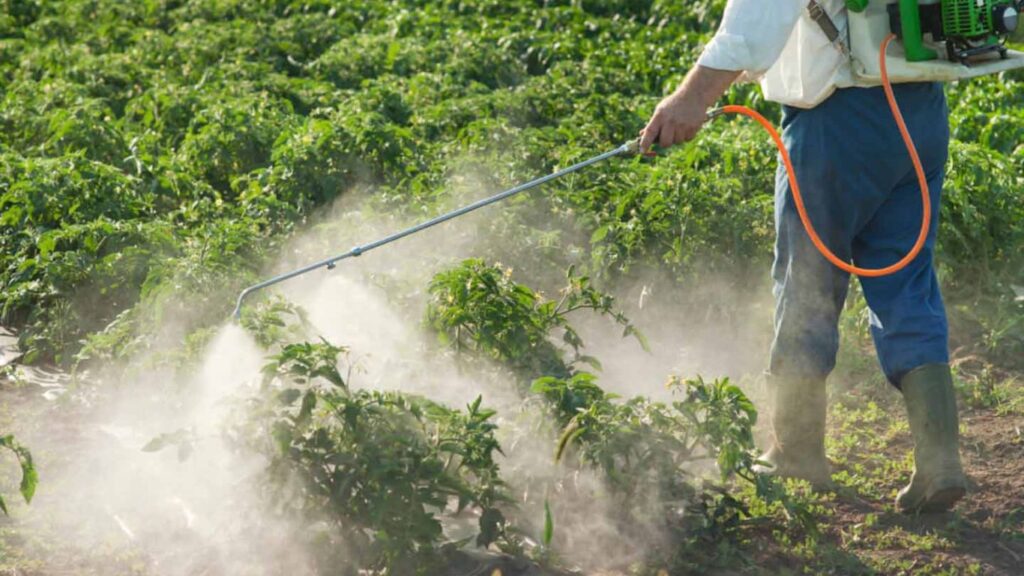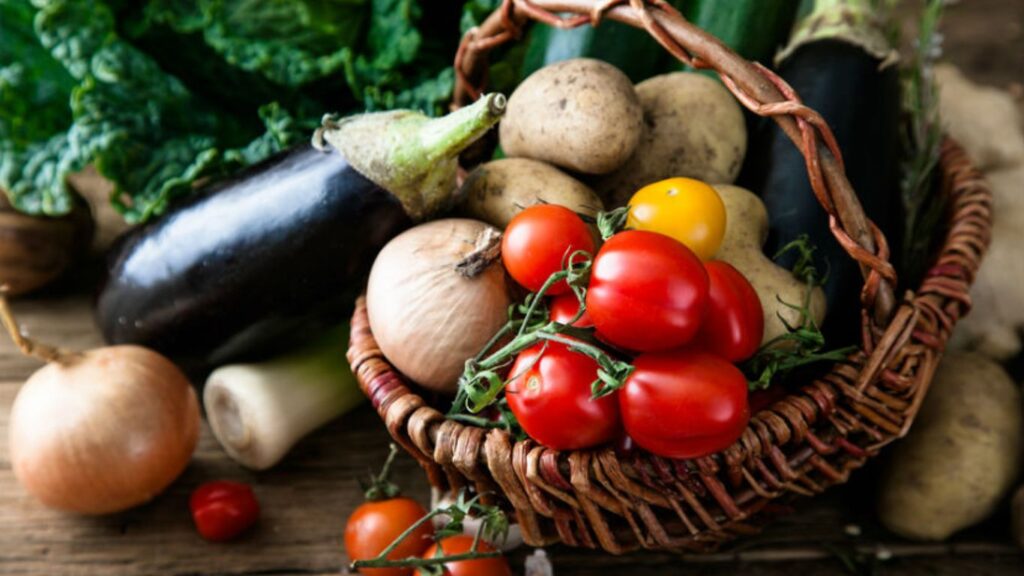Organic farming is an agricultural method that emphasizes the use of natural substances and processes to maintain soil fertility and control pests, avoiding synthetic chemicals like pesticides and fertilizers. Its popularity has surged as consumers increasingly seek healthier and more sustainable food options. This shift is driven by growing concerns over the extensive use of chemical fertilizers and pesticides in conventional farming, which are linked to a range of health issues including cancers, hormonal disruptions, and other chronic diseases. Moreover, the environmental impact of these chemicals, such as contamination of water sources, degradation of soil health, and harm to wildlife, adds to the urgency for safer agricultural practices. This blog aims to delve into how organic farming practices offer a significant reduction in these health risks, providing a cleaner, and more sustainable approach to producing food.
Going Green: How Organic Farming Practices Reduce Health Risks from Chemicals
The Risks of Chemicals in Agriculture
Types of Chemicals
- Synthetic Fertilizers: Commonly used to enhance plant growth; includes nitrogen, phosphorus, and potassium-based compounds.
- Pesticides: Used to control pests and disease; includes insecticides (e.g., neonicotinoids), herbicides (e.g., glyphosate), and fungicides.
- Growth Regulators: Chemicals that alter plant growth patterns, such as gibberellins or auxins, often used to synchronize or enhance crop yields.
Health Risks
- Consumers: Residual chemicals on produce can lead to health issues like neurotoxicity, endocrine disruption, and even carcinogenic risks.
- Farmworkers: Direct exposure to these chemicals can cause acute poisoning, long-term cancers, respiratory issues, and skin diseases.
- Local Communities: Chemical runoff into local water supplies can affect community health, leading to chronic illnesses and developmental problems in children.

Environmental Impact
- Biodiversity: Chemicals can kill non-target species, disrupting local ecosystems and leading to reduced biodiversity.
- Water Quality: Runoff from farms pollutes rivers, lakes, and groundwater, affecting aquatic life and making water unsafe for consumption.
- Soil Health: Excessive chemical use degrades soil fertility by killing beneficial microorganisms and reducing nutrient availability, leading to long-term decreases in soil productivity.
Fundamentals of Organic Farming
Organic farming is an agricultural system that seeks to provide fresh, tasty, and authentic food while respecting natural life-cycle systems. It is defined primarily by the use of techniques that do not involve synthetic pesticides or fertilizers, instead focusing on maintaining ecological balance and conserving biodiversity. The standards that distinguish organic farming from conventional methods are rigorous: they require adherence to natural substance use and comprehensive record-keeping that traces the entire chain of agricultural production.
Key practices in organic farming include crop rotation, which helps maintain healthy soil and control pests and diseases by varying the crops planted on a particular plot of land. Green manure, cover crops planted to enrich soil with nutrients and organic matter, and composting, the process of turning organic waste into nutrient-rich compost, are also crucial. These methods naturally enhance soil fertility and structure, reducing the need to use chemical inputs.
Additionally, biological pest control, which involves using living organisms such as beneficial insects or microbes to control pest populations, is preferred over chemical pesticides. Organic farming strictly prohibits synthetic chemicals, relying on these environmentally friendly and sustainable practices to maintain healthy and productive crops.
Health Benefits of Organic Farming
Reduction in Chemical Exposure:
- Avoidance of Synthetic Inputs: Organic farming strictly avoids the use of synthetic pesticides and fertilizers, significantly reducing the residue levels in the food produced.
- Healthier Working Conditions: Farmworkers on organic farms are not exposed to the toxic chemicals commonly used in conventional agriculture, reducing their risk of occupational illnesses.
- Safer Environment: By not using harmful chemicals, organic farming helps maintain cleaner water supplies and healthier ecosystems, benefiting all forms of life in the area.

Nutritional Benefits:
- Higher Nutrient Content: Studies have shown that organic produce often contains higher levels of vitamins and antioxidants, which are critical for health, compared to conventionally grown foods.
- More Antioxidants: Organic fruits and vegetables have been found to contain up to 69% more antioxidants, according to some research, which are believed to help combat cancer and improve overall health.
Long-term Health Benefits:
- Reduced Risk of Chronic Diseases: The lower pesticide residue levels in organic food are linked with a reduced risk of health issues, including endocrine disruption and certain cancers.
- Support for Immune System: The absence of foreign chemicals in organic food means the immune system deals less with toxins, potentially reducing inflammation and bolstering overall health.
- Holistic Benefits: The environmental benefits of organic farming, such as improved soil health and biodiversity, contribute indirectly to human health by fostering a more sustainable and less polluted environment.
Challenges and Misconceptions
Challenges Faced by Organic Farmers
- Higher Costs: Organic farming often incurs higher costs due to the need for more labor-intensive practices such as manual weeding and the use of more expensive organic fertilizers and pesticides. These increased costs can make organic products more expensive for consumers.
- Lower Yields: Initially, organic farms may produce lower yields compared to conventional farms. This is often due to the absence of chemical fertilizers that rapidly boost plant growth. Over time, however, organic methods can improve soil fertility and may increase yields.
- Certification Process: Obtaining organic certification is both costly and time-consuming. Farmers must adhere to strict regulations and undergo regular inspections, which can be a significant barrier, especially for small-scale farmers.

Common Misconceptions about Organic Farming
- Pesticide-Free: It’s a common misconception that organic farming means completely pesticide-free. In reality, organic farmers are allowed to use natural or non-synthetic pesticides, which are generally considered less harmful than their chemical counterparts.
- Scalability Issues: Another myth is that organic farming cannot be scaled up to meet global food demands. While organic farming is indeed more resource-intensive, innovations in organic techniques and better management practices are showing that it can be scaled effectively.
- Nutritional Superiority: Some people believe that organic foods are significantly more nutritious than conventional ones. While organic produce may have lower pesticide residues and in some cases higher antioxidant levels, the overall nutritional differences are often minimal.
Conclusion
Organic farming presents a sustainable alternative to conventional agricultural methods, significantly reducing our exposure to harmful chemicals. By embracing organic practices, we can foster healthier ecosystems and food sources, ultimately contributing to our well-being and environmental health. Supporting organic agriculture through informed purchasing decisions and advocating for policies that encourage sustainable farming can propel us towards a safer, greener future. As consumers and citizens, our choices have power; opting for organic is a step towards mitigating health risks and promoting a healthier planet for future generations.
Also read: 5 Everyday Habits That Are Secretly Killing Your Appetite
